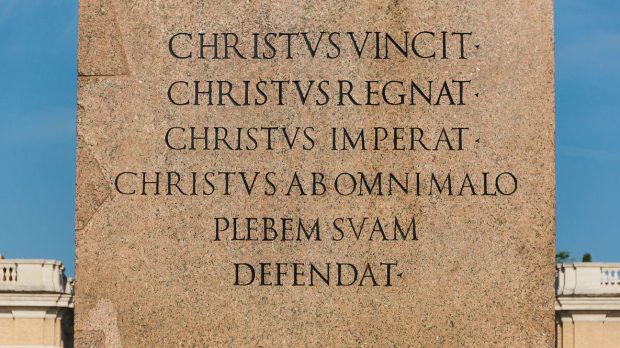Lenten Campaign 2025
This content is free of charge, as are all our articles.
Support us with a donation that is tax-deductible and enable us to continue to reach millions of readers.
Last year Tom McDonald wrote a piece about how Latin is making a comeback in our high schools:
The Church may have mothballed much of its Latin, but in the secular world — according to the American Classical League — it’s making a roaring comeback and is now, after Spanish and French, the third most studied language in America. The biggest problem it’s facing isn’t disinterest in a “dead” language or the mystifying ablative absolute, but finding enough Latin teachers for all the students who want to study it.
It turns out, some of those students are living in the troubled city of Philadelphia, where the study of Latin is building something connected to character, spirit, expectations and — best of all — hope for the future, as William McGurn writes at WSJ:
It may not be surprising to learn that a charter school named Boys’ Latin still offers courses in this dead language. But it is surprising to learn that this is an all-black school in an iffy part of West Philadelphia, and Latin isn’t merely an option here. It’s a requirement. Turns out, too, that the young men of Boys’ Latin have become pretty good at distinguishing their ad hominem from their ad honorem. This month the school received the results on the introductory level National Latin Exam, a test taken last year by students around the world. Among the highlights: Two Boys’ Latin students had perfect scores; 60% of its seventh-graders were recognized for achievement, 20% for outstanding achievement; and the number of Boys’ Latin students who tested above the national average doubled from the year before.
What’s the point, you might ask? Aside from the known benefits to studying Latin — better vocabularies, enhanced abilities in logic and structured thinking — the school’s chief executive officer, David Hardy says that the student’s success with Latin is a narrative-changer that “…defies the low expectations society puts on young black men.”
McGurn’s whole piece is worth reading, but I like Hardy’s assertion that since Latin is required, and all the boys must study it, it becomes the shared experience that builds esprit de corps.
I hope Philly’s Archbishop Charles Chaput, on reading about the school’s success, sends them an encouraging message — perhaps in liturgical Latin! Building community goes hand in hand with building spirit.

